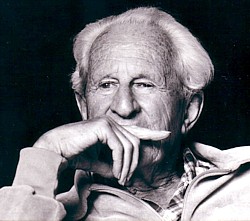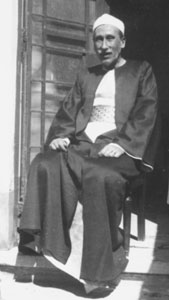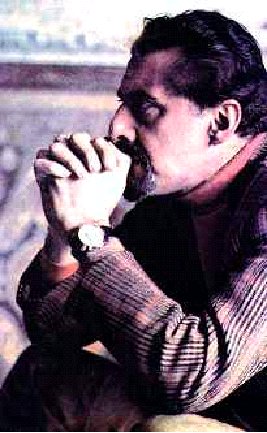
One of the greatest pleasures in reading, and in particular of instinctively ‘going with the flow’ in your choice of reading matter, is when you find yourself making unexpected connections between different authors or disciplines.
I had a strong sense of this when reading the 1964 classic One Dimensional Man: Studies in the Ideology of Advanced Industrial Society by Herbert Marcuse.
I wish I’d found this book many years ago, when my strongly-felt hatred for consumer society was unsubstantiated by any kind of coherent analysis – but I’ve got there in the end!
Anyway, one of the thinkers of whom I was reminded was René Guénon, a traditionalist metaphysician who, at first glance, would appear to have little in common with a man described as ‘The Father of the New Left’.
Marcuse’s criticism of consumer society, of capitalism, goes deep into the very mindset that makes its existence possible.
He writes: “The principles of modern science were a priori structured in such a way that they could serve as conceptual instruments for a universe of self-propelling, productive control; theoretical operationalism came to correspond to practical operationalism…
“Today, domination perpetuates and extends itself not only through technology but as technology, and the latter provides the great legitimation of the expanding political power, which absorbs all spheres of culture. In this universe, technology also provides the great rationalization of the unfreedom of man and demonstrates the ‘technical’ impossibility of being autonomous, of determining one’s own life.”
 |
| René Guénon |
Guénon also condemns science for having moved away from a quest to make sense of life as a whole into the practical realm of devising ways to manufacture objects (and thus money, power and control).
He writes in The Crisis of the Modern World (1927): “What the modern world has striven after with all its strength, even when it has claimed in its own way to pursue science, is really nothing other than the development of industry and machinery; and in thus seeking to dominate matter and bend it to their service, men have only succeeded, as we said at the beginning of this book, in becoming its slaves.”
The second specific connection I made (in general Marcuse’s ideas fit in very nicely with a lot of what I think) was more to do with timing. I happened to dip into a few chapters of Sufi author Idries Shah’s The Magic Monastery (1972), including an entertaining satire called The Oatland Story – and found it very much mirrors Marcuse’s theories.
Marcuse, in his book, describes “a pattern of one-dimensional thought and behaviour on which ideas, aspirations, and objectives that, by their content, transcend the established universe of discourse and action are either repelled or reduced to terms of this universe. They are redefined by the rationality of the given system and of its quantitative extension.”
Later he adds: “This language speaks in constructions which impose upon the recipient the slanted and abridged meaning, the blocked development of content, the acceptance of that which is offered in the form in which it is offered.”
And this is very much the theme of Shah’s satire, which revolves around a fictional country which entirely bases itself on oats and derived products.
He writes: “Oatism became a valued and self-perpetuating system, because its results were proved by its assumptions and its assumptions were proved by its results.”
Satirising the repressive use of language in our society, referred to by Marcuse, Shah explains that “oatistic capacity was not limited to defending the porridge or tirelessly researching into its values and uses. The philosophy could challenge all comers with an unanswerable dialectic: ‘If any of these crazy ideas outside oatism were capable of being useful in life, they could be explained in Oatlandese, the richest, most sublime medium of communication devised by man’.”
 |
| Idries Shah |
Leave a Reply